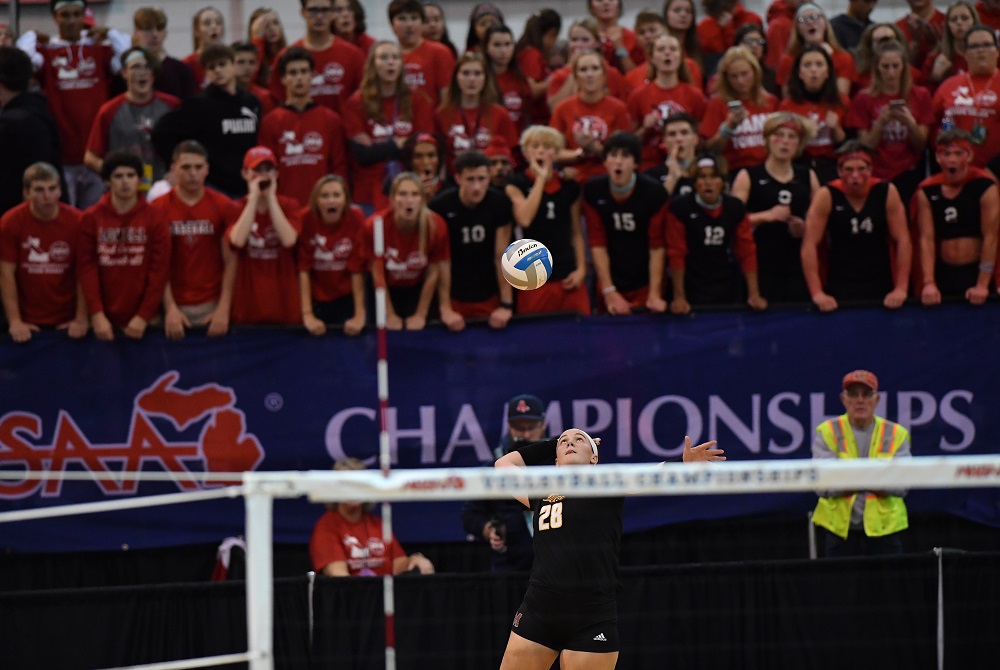
Be the Referee: Volleyball Replays
By
Sam Davis
MHSAA Director of Officials
September 13, 2022
Be The Referee is a series of short messages designed to help educate people on the rules of different sports, to help them better understand the art of officiating, and to recruit officials.
Below is this week's segment – Volleyball Replays - Listen
In volleyball, you’ll sometimes see the first referee gives a double thumbs-up signal. That’s not because the referee was impressed with a huge spike. So what does it mean?
A double thumbs-up signal indicates there will be a replay of the rally or point. What causes a do-over for a rally or point?
This most often occurs when something or someone enters the proximity of the playing area, but can also happen when the ball gets lodged in the net or overhead obstruction. When it hits certain objects on the wall short distances from the court, and when a player gets a little anxious and serves before the first ref’s whistle.
And, unlike any other sport, the point will be replayed if the officials just can’t come to an agreement on the call. The point gets wiped off the board, and the whole rally starts anew, like it never happened.
Previous Editions:
Sept. 6: Switching Sides - Listen
Aug. 30: Play Clock - Listen
Aug. 23: Intentional Grounding Change - Listen

Be the Referee: Curbing Gamesmanship
September 12, 2019
This week, MHSAA officials coordinator Sam Davis explains a new rule in soccer meant to keep teams in the lead from running time off the clock by making lineup changes.
Be The Referee is a series of short messages designed to help educate people on the rules of different sports, to help them better understand the art of officiating, and to recruit officials.
Below is this week's segment - Curbing Gamesmanship By Substitution - Listen
There’s a change to high school soccer rules nationally this year designed to curb gamesmanship by a team leading a contest toward the end of a game.
In the last five minutes of regulation, or the last five minutes in the second part of overtime, a rules change this year will stop the clock when that team makes a substitution. The clock will stop even if the team that is trailing makes a substitution at the same time.
This is the same as the NCAA rules, and aims to prevent teams from making multiple substitutions in the closing moments of a game as a way to help protect their lead by running time off the clock.
Past editions
Sept. 5: Football Safety Rules Changes - Listen
Aug. 29: 40-Second Play Clock - Listen

